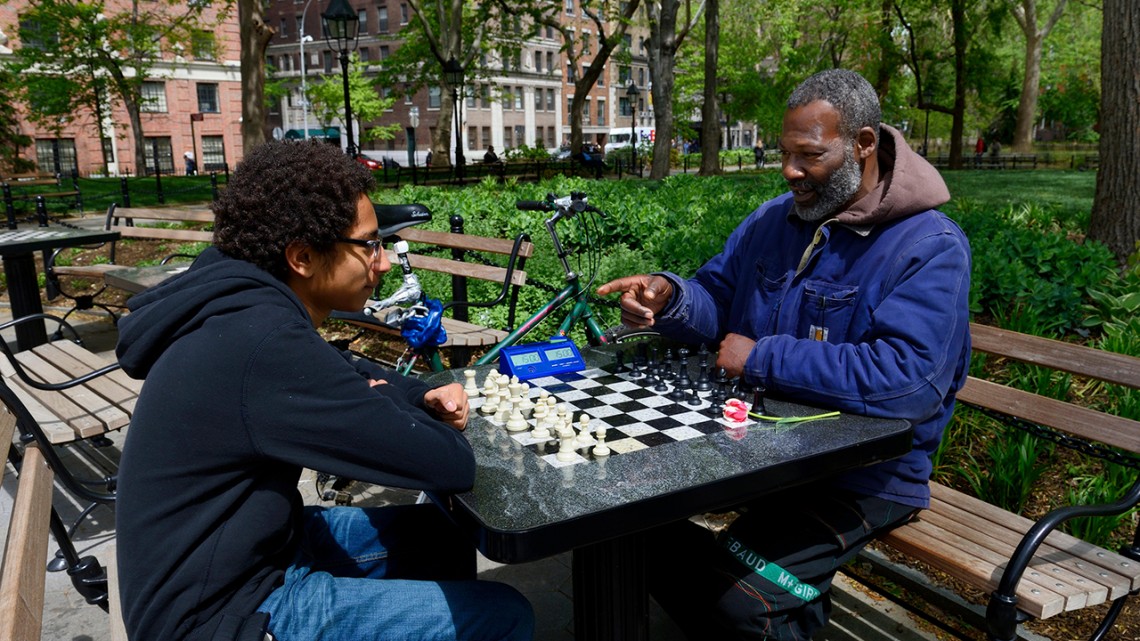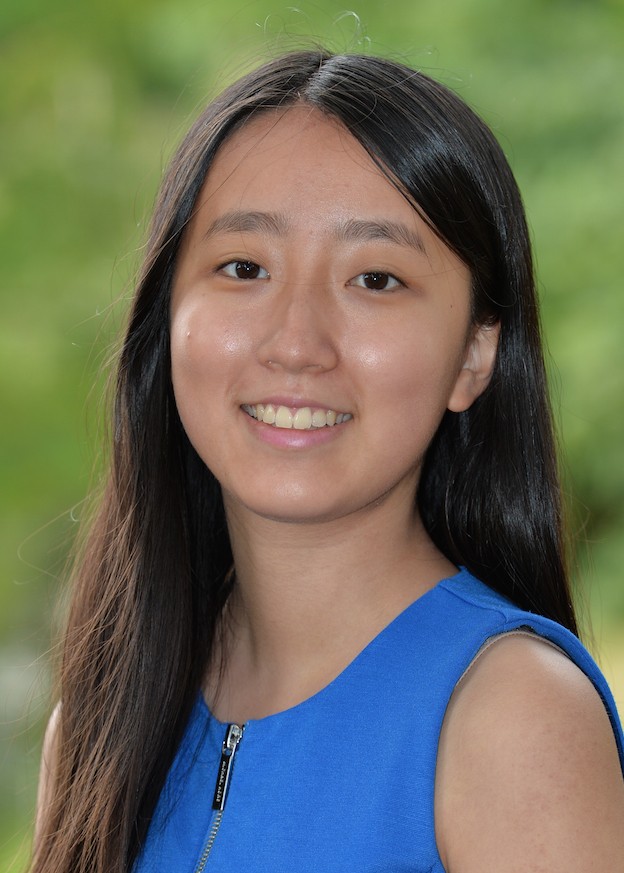
Joe, right, a chess master who formerly “hustled” chess games in Washington Square Park, now teaches people to play chess.
Wang helps formerly jailed chess hustlers get back on board
By Debra Eichten
Emily Zhihan Wang ’20 has been playing chess with her two brothers since childhood. Her love of the game, in conjunction with her academic experiences, spawned her commitment to developing a unique social entrepreneurial venture.
In 2017, Wang, a biology major and Public Service Center scholar, was a teaching assistant at the Cayuga Correctional Facility in Moravia, New York, where she learned that you have to “make due with whatever environment you have,” she said.
In spring, Wang was accepted as a 2018 delegate to the Clinton Global Initiative University conference which will be held later this month. This summer, Wang started working on her CGI U “commitment to action” by meeting with about a dozen formerly incarcerated men who hang out in Manhattan’s Washington Square Park and hustle chess games. Collectively, they have become known as superior chess players who will play anyone willing to pay a small fee to accept their challenge.
By providing these men with business and financial skills, Wang believes they can overcome a job market that stigmatizes former inmates and will be empowered to earn an income above the New York City poverty line.
“Our program is less formalized than I originally envisioned because these men are playing chess on the street and can’t really attend a class. So I simply sit down and play with them and have conversations while we play,” Wang said.
Working with CASES, a re-entry aid organization, Wang measures the success of the program, in part, by gauging increased earnings for the men. Originally the men earned $3 to $5 for every game they played; they now are teaching chess at an average of $30 per hour to people who seek them out in the park.
“We expanded the concept to include a video component as a chess classroom,” she said. “We now have about a million hits on one of our videos which showcase these ‘NYC Chess hustlers.’ To date, we have earned a couple thousand dollars in advertising revenue from our YouTube channel, which we plan to return to the men for marketing their classes or whatever they decide to do with starting a business.” Approximately 15 men participate in Wang’s program.
Wang continued, “Economic mobility is so much more difficult if you have been to prison, in part because our society is less forgiving and we don’t give people the opportunity to be self-sustaining. Entrepreneurship almost bypasses ‘the system,’” she said. “It is a chance to jump to the head of the line, to be your own boss. Because these men are recognized as top chess players in New York City and beyond, people are very willing to learn from them.”
Wang, who will return to Cornell’s Ithaca campus in December after taking a semester off to pursue her entrepreneurial interests, is one of 14 Cornell delegates to the Clinton Global Initiative University (CGI U) conference in Chicago Oct. 19-21. The conference brings together more than 1,000 students from more than 300 countries to be inspired and coached by international leaders of social entrepreneurial endeavors. Wang was also accepted to participate in the highly competitive CGI U hackathon event which brings together students from all disciplines to work for 24 hours on one large issue. This year, the students will be challenged to identify and define new ways to improve international response to natural disasters. The winning hackathon team will be honored on stage at the CGI U conference.
Debra Eichten is the Entrepreneurship at Cornell staff liaison with CGI U.
Media Contact
Get Cornell news delivered right to your inbox.
Subscribe

